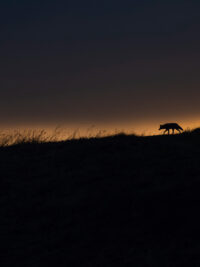
Jack London – author, reporter, adventurer, social activist… farmer. While the practice of sustainable agriculture is now entering the mainstream, London, at his Beauty Ranch in Glen Ellen, was implementing progressive farming techniques over 100 years ago.
London experimented with ideas, unheard of at the time, that are now standard practices: terracing, green water, mulching, composting, vegetable growing and providing progressive livestock conditions. At stake, he wrote, was the “solution to the great economic problems of the age”
London’s legacy and vision will be celebrated at his old farm, now Jack London State Historic Park, with the Sustainability Farm Festival, on Sunday, October 5.
The daylong festival brings together the pioneers of today’s Sonoma County sustainable farming culture to share ideas and celebrate smart farming. The free family-friendly event features music, food, “DIY fun learning” activities for kids and adults, as well as individual information stations coupled with park docents explaining London’s early farming techniques.
“This experience will be a step into a time capsule, as if to jettison to 1915 to observe Jack’s consultations on farming innovations with Luther Burbank and discover how that relates to today,” said Tjiska Van Wyk, the park’s executive director.
When he purchased and moved onto the property in 1905, according to London biographer Earl Labor, London realized that the land had been ruined by years of careless farming practices. The past owners had exhausted the soil to the point that it was deemed useless for agriculture by neighbors.
London, using organic restoration techniques he had seen in Korea and Japan while reporting on the Russo-Japanese war, set out to reinvigorate the farm.
“From a utilitarian standpoint I hope to do two things with the ranch.” London wrote, “to leave the land better for my having been, and to enable thirty or forty families to live happily on ground that was once so impoverished.”
 One example of London’s organic methods – he refused to use chemicals or pesticides –still stands: the large concrete silos (the first west of the Mississippi) used to store natural fertilizers. Remains of the “Pig Palace” are visible as well. The structure could house 200 hogs, and allowed each sow an “apartment” complete with exercise area. The humane and sanitary approach was extremely practical as well – centered around a main feeding and watering area, the ‘palace’ could be operated by one person.
One example of London’s organic methods – he refused to use chemicals or pesticides –still stands: the large concrete silos (the first west of the Mississippi) used to store natural fertilizers. Remains of the “Pig Palace” are visible as well. The structure could house 200 hogs, and allowed each sow an “apartment” complete with exercise area. The humane and sanitary approach was extremely practical as well – centered around a main feeding and watering area, the ‘palace’ could be operated by one person.
“Jack London has been called many things throughout history, among them, an author, explorer, visionary and a socialist,” wrote Tyler LeBlanc in a recent piece for Modern Farming. “He has even been called the greatest romantic of his time. However, above all these fancy titles, he was a farmer – and an inventive one at that.”
The Jack London Park Sustainability Farm Festival opens at 11 a.m. with the Autumn Farm Forum presented by Marcy Smothers and Clark Wolf. At noon, info stations open, with: Benziger Family Winery; Fiber Arts; Luther Burbank Experimental Gardens; Nana Maes Organics; Oak Hill Farms; Quarryhill Botanical Gardens; Quarter Acre Farms; Sonoma County Beekeepers Association; Sonoma County Waste Management; Sonoma Water Agency; Sonoma Valley High School Wolf Pack Recycling Team; Two Moon Farm; Senior Archeologist California State Parks; Jack London State Historic Park Master Gardner; and other current local innovators in the sustainability movement. No admission fee; $10 parking. 2400 London Ranch Road, Glen Ellen. 938.5216. Jacklondonpark.com.





Be First to Comment